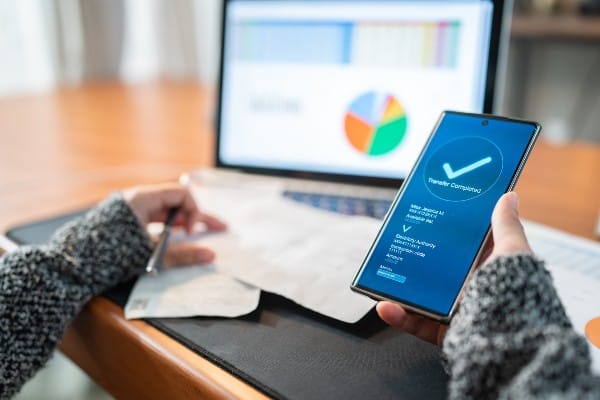Building a budget can feel stressful, especially if keeping track of spending doesn’t come naturally. Budgeting apps help reduce that pressure by automating tasks, tracking spending, and helping you build financial habits. They categorize transactions, show where your money goes, and support your goals, whether you’re saving, paying down debt, or just trying to spend better.
Below is a clear guide to today’s top budgeting apps, who they work best for, and what to consider when choosing one.
Best Budgeting Apps
Rocket Money
Best overall
Pros
- Affordable premium option
- Simple interface
- Savings tools and reports
- Tracks credit score and net worth
- Bill negotiation and cancellation services
Cons
- Free version has limited features
- No debt-planning tools
- Fees for bill negotiation
Rocket Money works well for most people who want an easy system. You can track spending, receive alerts for bills and price changes, set savings goals, and automate transfers. Premium costs depend on what you choose to pay within the range provided.
YNAB
Best for detailed budgeting
Pros
- Extended trial period
- Savings goals
- Uses zero-based budgeting
- Learning resources
- Loan payoff planner
Cons
- Higher price
- Time-intensive setup
- Does not automatically suggest savings changes
YNAB assigns every dollar a purpose. It requires more involvement but gives clarity and control. Good for people who want a structured method and long-term financial planning.
PocketGuard
Best for debt payoff
Pros
- Automated savings
- Debt payoff planner
- Subscription and bill tracking
- Bill negotiation options
Cons
- Short free trial
- Desktop version can feel crowded
PocketGuard supports budgeting and also helps plan debt repayment. It suggests opportunities to reduce expenses and manage bills, making it helpful for users focused on paying down loans or credit card balances.
EveryDollar
Best for zero-based budgeting
Pros
- Clear budgeting process
- Financial roadmap
- Group coaching included in Premium
Cons
- Manual transaction sorting
- Higher monthly cost
- Limited free plan
EveryDollar follows a structured system based on assigning every dollar before the month begins. It suits people who want to closely track spending and follow a set financial program.
Goodbudget
Best for envelope budgeting
Pros
- Simple, visual budgeting system
- Debt payoff planning
- Refund available if cancelled in 30 days
Cons
- Manual entry
- Limited flexibility in free version
- No automatic account syncing
Goodbudget mimics the traditional envelope method. It is helpful for building discipline and learning spending patterns through manual input.
Quicken Simplifi
Best for a full view of finances
Pros
- Savings and investment tracking
- Projected cash flow view
- Custom spending reports
Cons
- Annual payment only
- No trial
- Detailed interface may feel busy
Simplifi is for users who want to track many financial areas in one platform, including investments and net worth. It supports complex financial planning.
What Happened to Mint?
Mint closed in March 2024. Many users have moved to Rocket Money or other tools depending on their needs.
How to Choose a Budgeting App
Ask yourself:
- How hands-on do I want to be?
- Do I need help with debt, saving, or both?
- Do I want automatic syncing?
- What’s my budget for tools?
Look for clear design, useful alerts, and trial periods when testing options.
Are Budgeting Apps Worth It?
Budgeting apps can make tracking easier, but they support your effort rather than replace it. They help with organization, awareness, and planning.
Free versions are a good starting point. If you need deeper features, subscription apps may add value by improving long-term financial habits.
Tips for Using a Budgeting App
- Set realistic categories and spending limits
- Check the app regularly
- Turn on alerts
- Adjust your budget when life changes
Bottom Line
Budgeting tools can simplify planning and support financial goals. Whether you want a simple spending tracker or a full financial dashboard, there are strong free and paid options. Choosing the right app depends on your habits, goals, and comfort level with tracking details.














